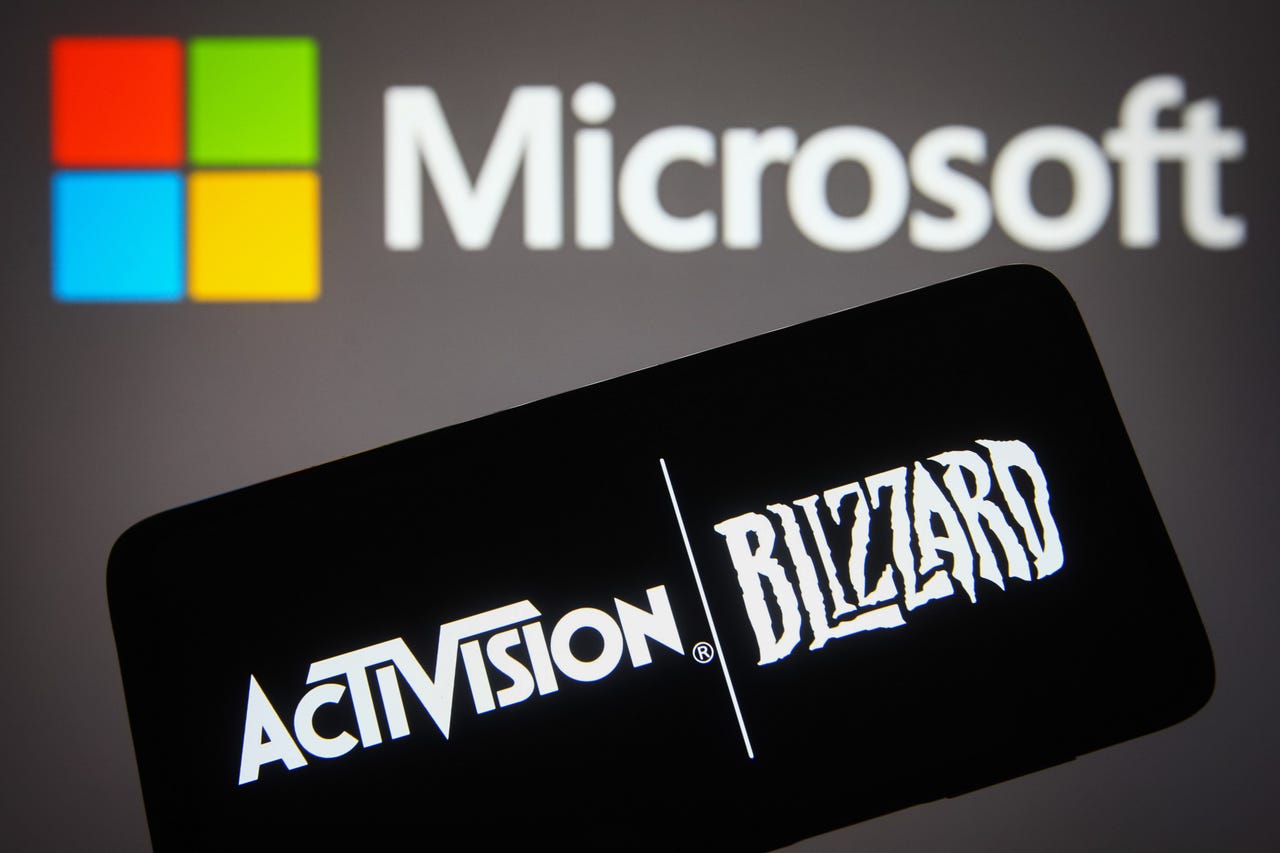Microsoft's Activision Blizzard acquisition gets blocked in the U.K.


In Jan. 2022, Microsoft announced plans to acquire Activision Blizzard, the video game giant behind some of the most popular video games of our time, for $68.7 billion.
However, the acquisition plans were first met with resistance from the Federal Trade Commission (FTC) due to the acquisition's potential to harm competition in the space and prevent users who use rival consoles from having access to the games.
On Wednesday, Microsoft faced similar concerns from the U.K.'s Competition and Markets Authority (CMA), which blocked the deal from happening in the U.K..
Also: How to build a gaming PC for $2500
The CMA claims that the deal would hurt the cloud gaming market making Microsoft "even stronger in cloud gaming, stifling competition in this growing market." The CMA calculates that Microsoft already accounts for 60-70% of global cloud gaming services.
The CMA's in-depth review of the deal began in Sept. 2022, and reached its conclusion nearly five months later on Feb. 22, 2023.
In the absence of the Microsoft acquisition, the CMA says that Activision would likely start offering its games via cloud platforms, which would give U.K. gamers more flexibility on how to play, with the option to play without expensive gaming consoles and PCs.
However, the CMA found that Microsoft would greatly benefit from making Activision's games exclusive to its own platform, and as a result, stifle potential innovation developments that could be benefit the public from occurring.
Also: The best gaming PCs: Top rigs for pros, casual gamers, and creators
"Microsoft already enjoys a powerful position and head start over other competitors in cloud gaming and this deal would strengthen that advantage giving it the ability to undermine new and innovative competitors," said Martin Coleman, chair of the independent panel of experts responsible for conducting this investigation.
Microsoft attempted to resolve some of the concerns presented by the CMA through proposals which the agency says had "a number of significant shortcomings" and which would require regulatory oversight by the CMA.
Microsoft's proposed resolution included multiple 10-year deals with rival platforms like Sony and Nintendo, which would secure them access to Activision Blizzard games during that time.
However, the CMA claims that the proposal "would standardise the terms and conditions on which games are available, as opposed to them being determined by the dynamism and creativity of competition in the market."
Also: Microsoft launches bug bounty program for the new Bing
"Microsoft engaged constructively with us to try to address these issues and we are grateful for that, but their proposals were not effective to remedy our concerns and would have replaced competition with ineffective regulation in a new and dynamic market," says Coleman.
Microsoft is not taking no for an answer.
Shortly after the CMA's announcement went public, Microsoft's Vice Chair and President, issued a statement via Twitter announcing Microsoft's intent to still acquire Activision and appeal the CMA's decision.
We remain fully committed to our acquisition with @ATVI_AB and will appeal today's determination by the CMA. Here's our statement. pic.twitter.com/ylvDP5RUqQ
— Brad Smith (@BradSmi) April 26, 2023
"We're especially disappointed that after lengthy deliberations, this decision appears to reflect a flawed understanding of this market and the way the relevant cloud technology actually works," said Smith in the statement.
Activision Blizzard CEO Bobby Kotick echoed similar sentiments in an email to his team and confirmed plans to appeal the decision.
"Alongside Microsoft, we can and will contest this decision, and we've already begun the work to appeal to the U.K. Competition Appeals Tribunal, said Kotick. "We're confident in our case because the facts are on our side: this deal is good for competition."